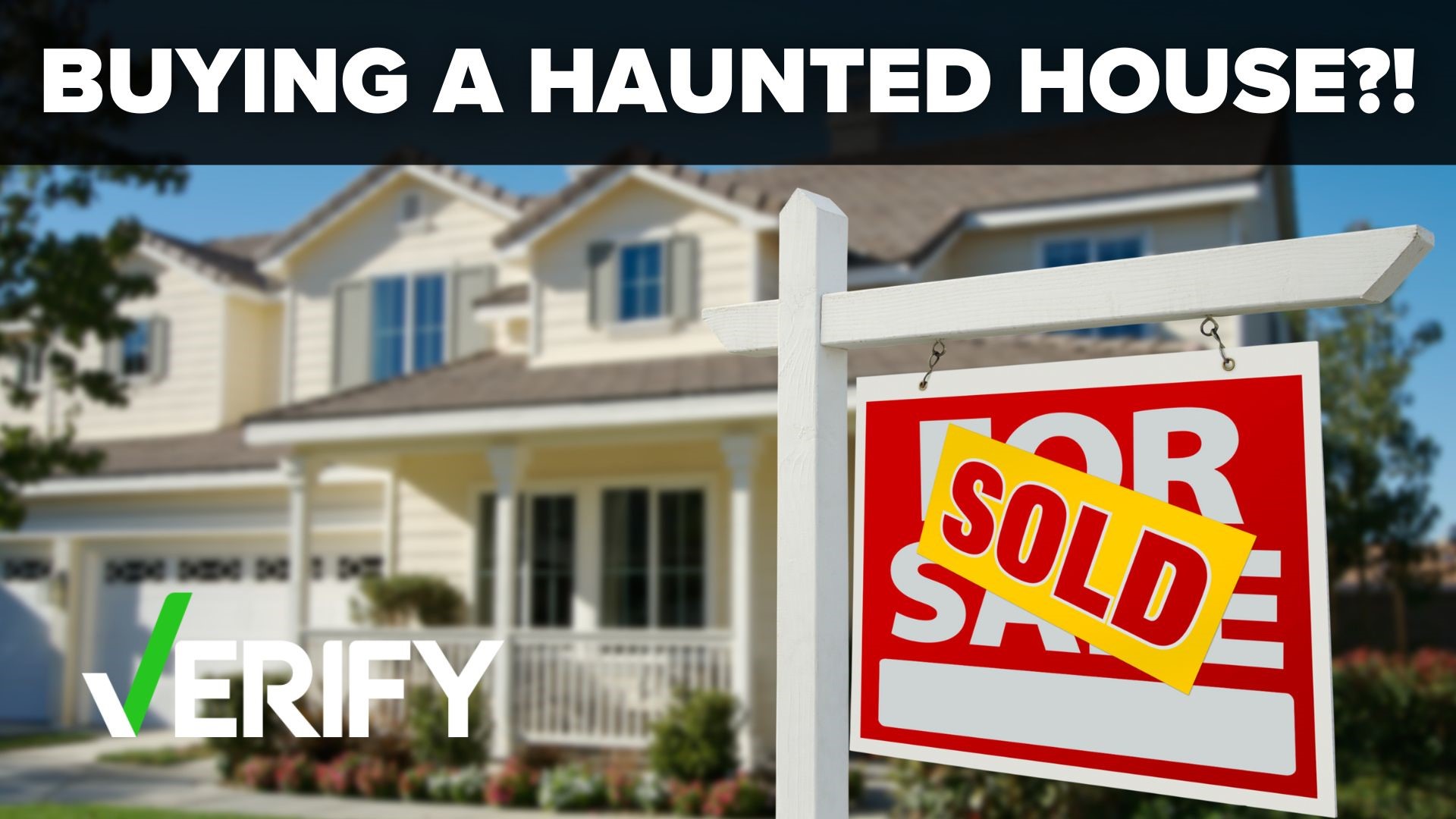CHARLOTTE, N.C. — If you like spooky things, then you probably love haunted houses. But no one wants to actually live in one.
Charlotte is still a pretty hot real estate market, and many people are wondering if sellers are required to tell a potential buyer if someone died in their home. It sounds like a silly question, but buyers have plenty of reasons to be particular, especially when you might have to pay above the asking price to secure a bid on a listing.
At least one realtor in Michigan lets potential buyers know right up front the houses he's selling aren't haunted.
"I have several different ones," Greg Smith said of his funny for sale signs. "I have that 'not haunted,' one that says free pizza with the purchase of a home."
It's a catchy way to get someone's attention, for sure.
THE QUESTION
Do sellers have to legally tell a potential buyer if someone died in the home?
OUR SOURCES
THE ANSWER
No, sellers aren't legally required to inform potential buyers up front that someone died in the house, even if it was a violent death. However, if the buyer asks, the seller would be required to disclose that information.
WHAT WE FOUND
When it comes to disclosing that a person died in the home, both Wilcox and Hoffman said sellers aren't legally obligated to tell you. That applies to listings in both North Carolina and South Carolina.
"If the buyer doesn't ask, it's not something that needs to be disclosed per se," Hoffman said. "It's not on the disclosure statement in the Carolinas."
But if the buyer does ask?
"If the buyer specially asks the seller, then the seller has to disclose it," Wilcox said.
"If you know and if the sellers know, then they have to confirm, and that's across the board," Hoffman said.
Borth Hoffman and Wilcox told VERIFY that ethically, they would tell any potential buyers about a death in a home right off the bat. However, they said if you're a buyer it's good to do your research if it's something that would be a deal breaker.
"Maybe just a quick Google search just to see if any news stories pop up," Wilcox said.
Contact Meghan Bragg at mbragg@wcnc.com and follow her on Facebook, Twitter and Instagram.
VERIFY is dedicated to helping the public distinguish between true and false information. The VERIFY team, with help from questions submitted by the audience, tracks the spread of stories or claims that need clarification or correction. Have something you want VERIFIED? Text us at 704-329-3600 or visit VERIFY.

